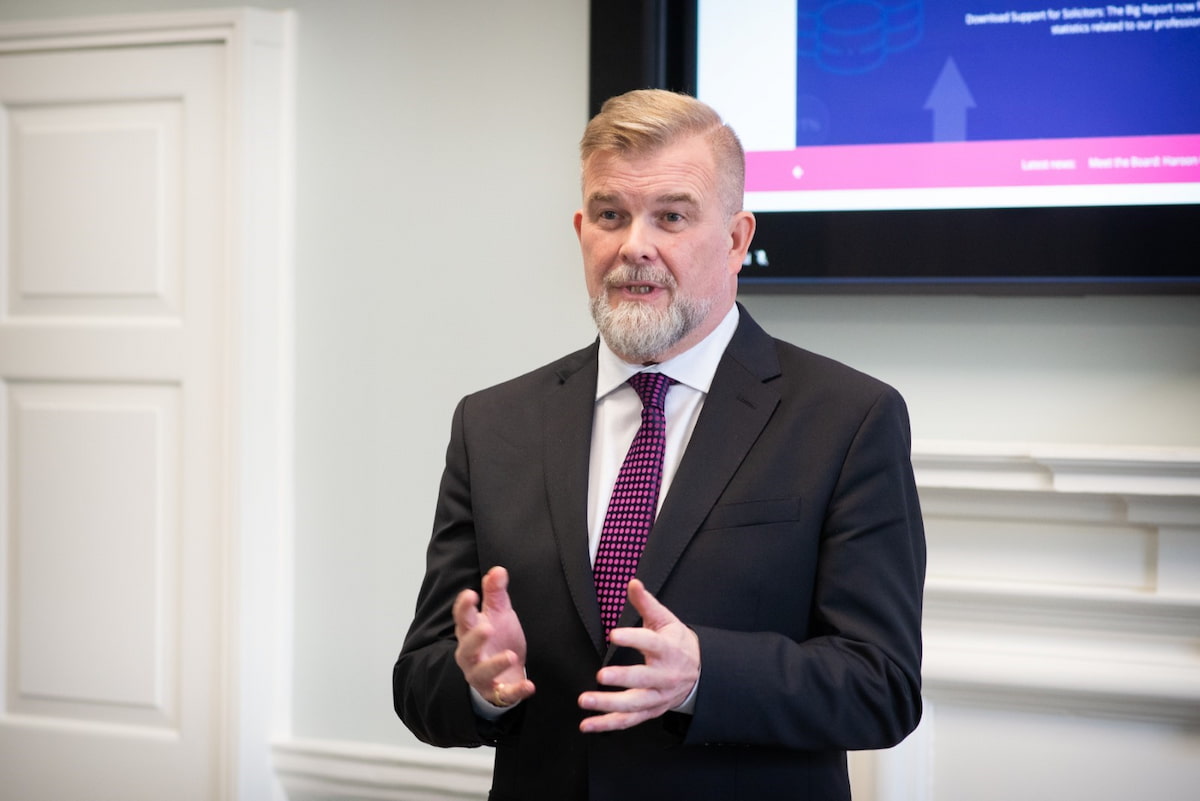
Helen Libson, Global Engagement Manager at Peerpoint, is the Co-Author of the Future for Legal Talent Report – a major study into how lawyers view their careers in a new world. The results have led to some interesting insights; which, during her interview with Modern Law, Helen shed some light on, in terms of career aspirations, expectations, and the hopes and fears of lawyers in the light of a changing industry.
Q. Can you tell us about the Future for Legal Talent report and the drive behind it?
A. The Future for Legal Talent is a report we published off the back of a large piece of research we conducted about lawyers and their careers. We were keen to understand how lawyers felt about the future and discuss their aspirations, hopes and fears. We surveyed over 1,000 lawyers in the UK and Asia Pacific, covering in-house, private practice and consultant lawyers.
The driver was to give voice to the lawyers and explore how those at the sharp end felt. There was so much noise in the market around the future of law firms, legal functions and technology but little focus on the actual lawyers themselves. We wanted to open up a broader dialogue around them.
Q. What was the main surprise in your findings?
A. We were quite shocked by the gap between how many lawyers felt they would need differing skill sets to be successful in the future and how prepared they currently felt. For instance, 84% of lawyers agreed they’d need different skills today than they had done in the past but only 30% felt prepared for that change.
Another surprise was that 72% of lawyers surveyed chose ‘good work/life balance’ as the top indicator of what success looked like. We suspected it would be high but not by that much. It came above seniority and pay; a shift in the historical markers of success.
I think it shows how expectations have shifted in terms of personal satisfaction and what lawyers are demanding from employers.
Q. Do you believe that technology/AI can truly replace the role of the lawyer in the future, and what threat might that pose to young talent?
A. We found that lawyers were positive about the effect technology could have on their career – 61% of respondents said that it would significantly and positively change how their career path developed.
I absolutely believe that lawyers have a valuable role in the future, but I think that role will shift. In many cases it will allow lawyers more freedom to work on the interesting aspects of the law and cut down the lengthy, more mundane tasks. This is particularly relevant to young talent.
The real challenge around technology for lawyers will be their openness to embrace it.
Working with technology is about optimising a lawyer’s time and in most cases it’s not about needing to understand complex software. I would encourage lawyers to start small and look at their day-to-day, from being open to making adjustments their everyday programmes like Microsoft Outlook, to taking an interest in the technology being developed in their area.
Technology should be viewed as augmenting, not replacing roles.
Q. What opportunities do you think Peerpoint can offer that traditional Law firm models may not, in the ability to reskill?
The key about reskilling is that it’s most effective when it comes from gaining experience and exposure to different teams and types of work rather than just theoretical training. That’s something unique that we can offer at Peerpoint.
Not only do our consultants want to grow their existing skill set, but some want to shift into new areas requiring new skills. This is something that is much more difficult to do in a traditional law firm setting.
We work very closely with our consultants to understand what it is that they want to gain in terms of skills and experiences. Our consultant management team and client team then work together to find the right opportunities to facilitate that. If we feel that consultants might gain from extra support in new areas, we’ll also work with Allen & Overy to provide extra training and resources.
Some of our consultants have made really successful and exciting transitions from one specialism to another, which is always gratifying to see and something unique we are able to deliver.
Q. How is the required skill set changing for those wanting to progress their careers?
A. I think it’s changing greatly. Differentiating oneself is key to progressing in a way that wasn’t so important in the past. Technical ability amongst peers is mostly identical and as teams diversify and people increasingly move between organisations, it will become key to not only identify and build on one’s skill sets but also market and communicate them to others.
Broadening skill sets beyond the traditional technical capabilities will help lawyers stay ahead. Technological skills, a stronger personal brand, and greater commercial awareness were top of the list when we asked lawyers what skills they would need over the next 5-10 years.
I think there’s been an interesting shift, reflected in the wider world of work beyond law, to acknowledge the value of what has previously been called ‘soft skills’. Being able to communicate and collaborate effectively will have a huge impact, especially as the legal industry evolves to encompass technology and more diverse roles. We see increasing interest from clients with project management skills who can juggle both the wider commercial context and the organisational skills to drive projects forward.
Q. Do you think the definition of ‘success’ has changed, and what impact does that have on running a legal function?
A. Definitions of success have definitely changed. However, I would say that there isn’t one standard as to what it looks like. For many, seniority will still be their top requisite and for others it might be variety in their work or control – for most it’s a combination.
I do think there is a greater expectation on employers to deliver a fulfilling career that ticks more boxes than before. In an increasingly competitive talent market with more fluidity this puts extra pressure on those running legal functions to deliver.
It’s also important for those running legal functions to remember that these definitions constantly evolve as one moves through a career, so it’s key to keep checking in with your team members.
Q. How can firms develop and support talent when they have limited capacity for promotions?
A. Where capacity for promotion is limited, it’s helpful to think of what you are adding to an employee’s career in a wider sense, even beyond the firm or business you work for. If seniority isn’t possible, it’s all about how you can deliver growth that helps individuals feel they’re moving forward in their career.
Sometimes for this to happen we need to break out of a mentality, arguably prevalent in the legal industry, that talent moving on is a bad thing. Perversely, sometimes helping equip talent with skills to make a success outside of your firm or organisation is a great way of retaining them.
Q. For those who have lost the love for their career or feel unsupported in their career ambitions, what advice would you give them?
A. It’s possible to get the love back! In many cases, if you’re feeling burnt out and at the point of disillusionment it can be an exhausting process to try and see a way forward.
We found that, overall, lawyers are satisfied with their profession (74%) but find the career opportunities frustrating. Previously it felt like private practice and in-house were the only options but there are now many career paths to take, don’t be limited by thinking in a linear way about your career.
Consulting is a great option to refresh oneself, whether you want to explore it long term or simply use it as an exciting way to upskill and gain experience in a new area with a view to taking another permanent role. For many lawyers, taking back control over their career and being able to pick and choose work is hugely revitalising and allows them to get on with what they originally loved doing. Consulting isn’t just for senior lawyers, we see great demand from clients for lawyers who are at the earlier stages of their careers.
There are also ways in which lawyers can utilise their legal skills in interesting roles that aren’t necessarily purely legal. Thinking about a career in terms of skills rather than a list of transactions and pieces of work is helpful when understanding what a lawyer is good at and how to promote themselves in the market.
I would also encourage them to constantly check in about what it is that they want from their career and where there might be gaps to fill in and address – a bi-annual review is a great way to structure those check-ins.




